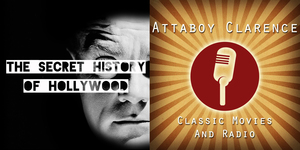Acting as kind of precursor to 1952's 'Singin' In The Rain', this dazzlingly inventive glimpse behind the curtain of an industry about to be devastated by the "talkies" could so easily be overlooked by the casual observer, but they'd be doing themselves a disservice.
With the advent of talking pictures, things are shaken up on Broadway, with producers and directors seeing empty houses for their lavish musical comedies. Chester Kent (James Cagney) is one such director, who hits upon the idea of setting up a theatrical group to provide pre-movie entertainment for cinema houses.
Aiding him in his creative endeavours is his steadfast secretary, Nan (Joan Blondell), who harbours a titanic crush on him, Scott Blair (Dick Powell), the new singer in the troupe, Francis (Frank McHugh), the pessimistic artistic director with a serious case of hypochondria, and Bea (Ruby Keeler), the bespectacled secretary who hides a wild streak.
On such a seemingly flimsy premise, you'd be forgiven for thinking that 'Footlight Parade' would be unable to sustain its 104 minutes, but the plot is watertight and barrels along without gristle, as Kent and his team have to deal with spies for other troupes, scheming romancers, a hatful of wannabes who can't sing, and two financiers who are intent on ripping off the troupe.
It culminates in three musical numbers which simply have to be seen to be believed. The first, 'Honeymoon Hotel' is a breezy romance about a pair of newlyweds who check in to the eponymous hotel on their first night of marriage. It's choreographed to within an inch of its life, and provides more laughs and charm in its eight minutes than most feature-length romcoms manage in ninety.
The second is the magnificent 'By A Waterfall', featuring a myriad of bathing beauties who spend a spellbinding section of the film creating hypnotic patterns in the water using nothing but their bodies, before turning into a colossal, human waterfall. It's difficult to describe the awe-factor achieved by the sheer spectacle of the sequence.
Lastly, Cagney himself turns in a cracking turn as the soldier singing his pain at being in love with a prostitute, in 'Shanghai Lil', featuring Keeler as Lil, and a bone-crunching fistfight as well as a neat twist ending.
The movie benefits no end by being made before the infamous Hays Office of Censors took control of Hollywood's output in 1934. The movie is thankfully low on the kind of gloss that would have made a true picture of backstage shenanigans impossible in a later film.
There's a remarkable amount of flesh on show, and while it's sexy as hell, it's also tasteful. Also, the dialogue, especially that of Blondell's Nan, is allowed to accurately reflect the insults of the day without being too whitewashed. As such, she's able to actively accuse a golddigging rival of being no better than a prostitute. Also, the Shanghai Lil sequence would have been a markedly different affair if it hadn't been set amongst the sleazier side of the waterfront bars.
As such, 'Footlight Parade' isn't just a fantastically entertaining spectacle, but a sly, charming peek at Pre-Code attitudes that reminds today's audiences that black and white romantic comedies weren't always whiter than white.





